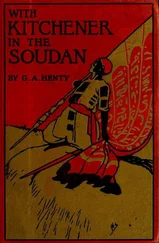Susan Jones - A Girl of the North. A Story of London and Canada
Здесь есть возможность читать онлайн «Susan Jones - A Girl of the North. A Story of London and Canada» — ознакомительный отрывок электронной книги совершенно бесплатно, а после прочтения отрывка купить полную версию. В некоторых случаях можно слушать аудио, скачать через торрент в формате fb2 и присутствует краткое содержание. Жанр: foreign_prose, foreign_language, на английском языке. Описание произведения, (предисловие) а так же отзывы посетителей доступны на портале библиотеки ЛибКат.
- Название:A Girl of the North. A Story of London and Canada
- Автор:
- Жанр:
- Год:неизвестен
- ISBN:нет данных
- Рейтинг книги:5 / 5. Голосов: 1
-
Избранное:Добавить в избранное
- Отзывы:
-
Ваша оценка:
- 100
- 1
- 2
- 3
- 4
- 5
A Girl of the North. A Story of London and Canada: краткое содержание, описание и аннотация
Предлагаем к чтению аннотацию, описание, краткое содержание или предисловие (зависит от того, что написал сам автор книги «A Girl of the North. A Story of London and Canada»). Если вы не нашли необходимую информацию о книге — напишите в комментариях, мы постараемся отыскать её.
A Girl of the North. A Story of London and Canada — читать онлайн ознакомительный отрывок
Ниже представлен текст книги, разбитый по страницам. Система сохранения места последней прочитанной страницы, позволяет с удобством читать онлайн бесплатно книгу «A Girl of the North. A Story of London and Canada», без необходимости каждый раз заново искать на чём Вы остановились. Поставьте закладку, и сможете в любой момент перейти на страницу, на которой закончили чтение.
Интервал:
Закладка:
Mrs. Carden was a selfish woman, with a firm belief in her own opinions, and her own importance; anyone who contradicted her or disagreed with her was at once a detestable person. Her affection for her son was expressed in long letters, and the frequent use of “dearest.” But her love was variable, and when he was at home he disturbed her breakfasts, while her nights were made feverish by his late hours, which kept the hall gas a-light until sometimes past twelve o’clock. Her servants assumed a more frivolous demeanour on his arrival, and it seemed to her that while their caps were coquettishly crooked and smart, her stiff house became sometimes slightly untidy.
Charlie Carden was in a line regiment stationed at Malta, with one hundred and fifty pounds a year besides his pay. His mother wondered why he never became dashing, or soldier-like, or anything of a hero, with a sprinkling from the pepper-pot of wickedness – to possess this is the bounden duty of every man when he puts on a red coat or a sword. Carden remained dull, and his mother almost despised him; he was not even selfish, nor did he bully her.
George Archer and Lavinia Carden were second cousins, she was the only relation left whom he had known as a boy. His recollections of her were hazy. In these she figured as a muslin-fichued, sandy-haired girl, in whose face piety and cruelty struggled for mastery; now she parted her hair deliberately in the middle, and indulged in them both. In her youth she had regarded George as a possible husband, and, not loving him, had forgotten him, therefore when reminded of his existence she felt angry with him. Was it not his fault that she had married a man whose only inclinations were to have a farmyard, against which she had had to struggle all her life?
The day before the Archers went to 52 Lancaster Road a note was sent to Lavinia to prepare her for their visit. Mrs. Carden therefore left off her cap for the afternoon, braving the smile of her parlourmaid with the fortitude of a widow who has given up hope of a second marriage, and who suddenly finds the wonderful idea returning with unwonted sweetness – brought back to her by the visit of a man who was long ago considered a possibility. His fondness for a walk from church on Sunday evenings with her had more than proclaimed this fact. She forgot he had a daughter, and that it was five and twenty years since they had met.
The outside of Lavinia’s house was grey. Inside her drawing-room suggested the past and dust, which was constantly being removed; its mark was on the carpet, the walls and the furniture. Only the red blinds shed a little cheerful light, which the drab curtains chastened and subdued.
Mrs. Carden began by relating reminiscences of the family, and then pitied George Archer for his long residence among Colonists. He explained that his residence was quite voluntary, and that he regarded it as the happiest period of his life.
“Did you think my father was obliged to live in Canada whether he liked it or not?” asked Launa; “that he was suffering an unwilling exile?”
“Not exactly that,” said Mrs. Carden. “Where are you staying?”
When she heard of the flat, and contemplated Launa’s boots and dress, she murmured to herself, “Money.”
“George, sometimes when you are busy I should be so glad to take care of Launa; I would take her to – ” She paused. Where could she take Launa? “We might go to the Zoo.”
“Thank you very much,” said Launa politely. She did not press Mrs. Carden to name the day for this expedition; she was not favourably impressed by her relative.
“You will come and dine with us, Mrs. Carden,” said Launa.
“Call me Lavinia,” said Mrs. Carden.
“Come any evening next week; which one will suit you?” asked Mr. Archer.
“Next Thursday,” answered Lavinia.
Then they talked of Mr. Archer’s old home, and looked at photographs of the whole of the family.
“Those happy days,” murmured Mrs. Carden, not without an uneasy feeling that her hair was growing thin at the parting; besides, she began to feel cold without her cap.
They drank weak tea, and Lavinia asked Launa her impressions of England.
“I think London is perfectly delightful,” she answered. “I don’t like the horses much. You use bearing reins. The river is quite perfect, and so different from ours. And yet sometimes I long for a stretch of rocky country, for more freedom. But the music and the life are so interesting. Yes, I love London.”
“Horses, river, life,” repeated Mrs. Carden.
A horse to her was a vehicle of locomotion, like an engine; it conveyed her to the station or to a party. Some deluded beings owned horses; she preferred hers hired, with no responsibility as to legs or grooms.
“You love boating and freedom,” remarked Mrs. Carden. “They are both often dangerous.”
“In this country, yes – where freedom frequently ends in trespassing,” answered Launa.
“Or worse – the loss of one’s reputation,” Lavinia said with decision.
Then she turned to George and told him anecdotes. She conversed rapidly and loudly; when she was a girl her family had told her she was arch.
When they rose to go she said: “George, my dear son will be at home in a few days. May I bring him to dine? Launa, he is your cousin.”
“Do bring him,” said Mr. Archer; “Launa will be glad to see him, I know.”
What a name – Launa! reflected Lavinia after their departure. What a fatality there is in our annexing the Colonies! Still, there is money behind the girl, and she is young.
By which reflection we may infer that Mrs. Carden thought of her son in connection with the money and Launa.
The Archers went home in a hansom.
“You call her a woman, daddy; now I call her a fossil,” said Launa. “She is not the sort of woman friend I need. I want a living woman – not one who has existed on husks until she withers everyone who goes near her.”
“She is a type,” he answered vacantly.
“She is an imitation. Show me some one who is brave – who has or knows life.”
“Would you like Mrs. Phillips to come and see you? She is Sir John Blomfield’s daughter, a widow and young. She wants to know you.”
“I am doubtful, not whether she will like me,” with sublime conceit, “but whether I shall like her.”
“You must try her,” he laughed.
His daughter amused him with her odd ideas.
However, when Mrs. Phillips did come, Launa approved of her.
All this time Launa was learning. She was filled with a desire to know and see more; people and life were so interesting. It was like a new play. She noticed how differently her father, herself, and the others were affected by it, and the noise was soothing, even at times deadening.
Launa found Mrs. Phillips entertaining. She explained some of the parts in this vast human drama. She found Miss Archer absurdly young in many of her notions, and absurdly old in others.
“I want to see everything,” said Launa, “and to live myself. It is terrible to feel oneself growing old. It will soon be over, and I haven’t done what I meant to do.”
Mrs. Phillips laughed.
“Go on. What did you mean to do?”
“I should like,” said Launa, “to be happy.”
“So should we all. Tell me more.”
“I want to play a little first, and then – to make the world a little brighter for someone.”
“If I were you, I would simply play myself and leave the others alone. Playing is real and not difficult. Once you begin to mix other people in your life, with your or their happiness depending on you, you will probably be very miserable.”
The admiration of one woman for another is sincere when it is felt when with her, and not merely expressed to a man.
Читать дальшеИнтервал:
Закладка:
Похожие книги на «A Girl of the North. A Story of London and Canada»
Представляем Вашему вниманию похожие книги на «A Girl of the North. A Story of London and Canada» списком для выбора. Мы отобрали схожую по названию и смыслу литературу в надежде предоставить читателям больше вариантов отыскать новые, интересные, ещё непрочитанные произведения.
Обсуждение, отзывы о книге «A Girl of the North. A Story of London and Canada» и просто собственные мнения читателей. Оставьте ваши комментарии, напишите, что Вы думаете о произведении, его смысле или главных героях. Укажите что конкретно понравилось, а что нет, и почему Вы так считаете.












